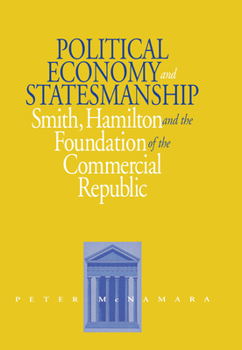Political Economy and Statesmanship
Select Format
Select Condition 
Book Overview
How and why do economies and societies develop? How can America maintain competitiveness in the global marketplace? What should be the balance between economic and political goals in the conduct of foreign policy?
Questions concerning relations between politics and economics are not new. Stepping back from current controversies, McNamara shows how the debates between Smith and Hamilton on the foundation of the commercial republic point to an important juncture in the history of political thought.
While remaining scrupulously fair to Smith's sophisticated account of politics and economics, McNamara brings out its limitations through a comparison with the stateman Hamilton's words and deeds. He stresses that Hamilton's reservations about Smithian political economy illustrate critical practical questions regarding the nature of capitalist economic development and call into question the relationship between political theory and political practice as it was conceived by Smith.
Political Economy and Statesmanship has a number of practical implications for contemporary debate. The author points toward a kind of constitutional economics distinct from that of the public choice school. McNamara suggests the need to revive the idea of an "American System" that matches economic policy with the political culture of the nation. Finally, the author affirms the idea that the United States, as the first "new nation," can serve as a model for developing nations.
Related Subjects
Business Business & Investing Philosophy Political Science Politics & Social Sciences




